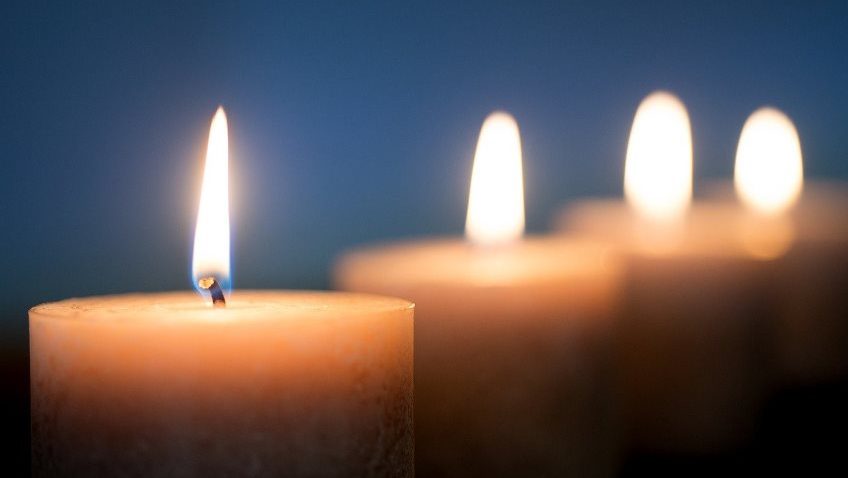A direct cremation is the simplest and cheapest way to be laid to rest in the UK.
From as little as £1,000 you can have a straight-forward cremation that requires very little planning. This is because there’s no funeral service, no ceremony and no mourners.
This is significantly cheaper than the average cost of a UK burial, which currently stands at a staggering £5,033, (Source: SunLife).
With a direct cremation, the ashes are returned to you afterwards so that you can decide where they shall be kept or scattered.
A direct cremation may be ideal whilst Covid-19 restrictions are still in place, from a cost point of view and also from a practical perspective.
Or, despite the pandemic, you may feel that something low-key and low-cost is exactly what your loved one would have wanted.
What happens at a direct cremation?
The direct cremation process will vary depending on which company is providing the service, but here’s a general overview of what may happen:
- The deceased is collected and taken into the care of the cremation provider
- The required paperwork is completed for a cremation to go ahead
- A simple coffin is provided, and this is transported with the deceased to the crematorium in a suitable vehicle
- The cremation takes place straight away (at a time and date decided by the crematorium)
- The ashes are transferred into a simple container to be returned to loved ones
Some families choose to arrange an informal get together once the ashes have been returned (and, during these times, when lockdown and social distancing restrictions have eased).
This could be a memorial or celebration of life where people can pay tribute, share memories, look through old photographs and listen to music – whatever you think your loved one would have wanted.
How much does it cost?
As mentioned, direct cremations are cheaper than any other funeral option in the UK.
According to a funeral costs report for 2020, a direct cremation cost on average £1,554.
This is 60% less than the average cost of a basic cremation funeral with ceremony (which is £3,885).
However, the amount you pay for a direct cremation may depend on:
- Where the crematorium is in the country (prices vary from region to region)
- The company you choose to carry out the direct cremation
- If the person needs to be collected from home or from a nursing home (there may be an additional fee for this)
- The size of the coffin (if a larger one is needed then this will cost extra)
As you would with any large expense, it’s important to compare prices from a variety of providers.
Some will be more expensive than others, but if you compare the prices and features it can give you a good idea of what will offer you the best value for money.
What are the pros and cons?
Some of the main pros and cons include the following:
Pros
A practical option whilst Covid-19 restrictions are still in place.
Much more affordable than a traditional cremation funeral.
Protects family members who may find it too upsetting to organise or attend a full-service funeral.
Allows you to arrange a private celebration of life or memorial service at a different time and place.
Cons
You can’t visit the person who has died before the cremation. You may only see them if they’ve passed away at home.
You can’t choose the time and date of the cremation.
You can’t choose the crematorium (it could be local or miles away)
You can’t attend the cremation which may be difficult for some family members.
What is the difference between a direct cremation and traditional cremation?
When there is a direct cremation, the deceased is cremated without receiving a funeral service or ceremony beforehand.
This means:
- No limousines
- No hearse
- No pallbearers
- No flowers
However, a traditional cremation funeral is led by a funeral director and is likely to include all these elements as well as additional extras that are required for the service.
This may include embalming of the deceased, an officiant to conduct the ceremony and a more luxurious coffin.
A traditional cremation can also be arranged at a time and date that suits the family, and they can visit the deceased before the funeral service (which, for some people, is an important part of the bereavement process).
Whereas a direct cremation doesn’t have this level of flexibility or personalisation.
As you may know, most people opt for a traditional funeral so that they can pay tribute and say their goodbyes before their loved one is laid to rest.
After all, the purpose of a funeral is to help family and friends acknowledge the loss and then move on from it as best they can.
However, having a funeral is also a choice and it may not be the right choice for everyone.
Which is why it’s good to have other options that can meet your unique needs and budget.
Why choose a direct cremation?
There are many reasons why someone may choose to have a direct cremation, whether that be for a loved one or for themselves in the future.
You may be surprised that the cost factor isn’t at the top of the list. In fact, most people opt for direct cremation because they want as little fuss as possible when they pass away.
They’d much prefer that family and friends have a small, private ceremony away from a funeral setting – reducing some of the stress and upset that they may already be going through.
This is the exact reason why celebrities David Bowie and Anita Brookner chose to have direct cremation, and why lots of people are following suit.
At the start of 2020 the number of direct cremations soared, perhaps because it made practical sense not to have a funeral, especially as the number of mourners is limited and that some traditional aspects can’t go ahead.
You may choose a direct cremation for other reasons, for example, family members live in different parts of the world and they may find it difficult getting to the funeral (particularly if they are elderly or suffer with health issues).
Can you prepay for a direct cremation?
Yes, you can prepay for a direct cremation with a prepaid direct cremation plan (also known as a cremation only funeral plan).
A prepaid plan includes all the essential services, and these can be paid for in advance to lock-in your funeral costs.
A lot of people are cautious of prepaid plans as they aren’t yet regulated by the FCA (Financial Conduct Authority).
However, plan providers are regulated by the Funeral Planning Authority (FPA) which ensures that each funeral plan customer and their money is protected.
Prepaid direct cremation plans can be purchased online directly with the provider or through an FCA regulated broker, such as Reassured – Funeral Plans.
A broker can compare funeral plan quotes from a number of providers and help you make an informed decision about which plan is the right for you and your family. They’ll even fill in the plan application form on your behalf.




